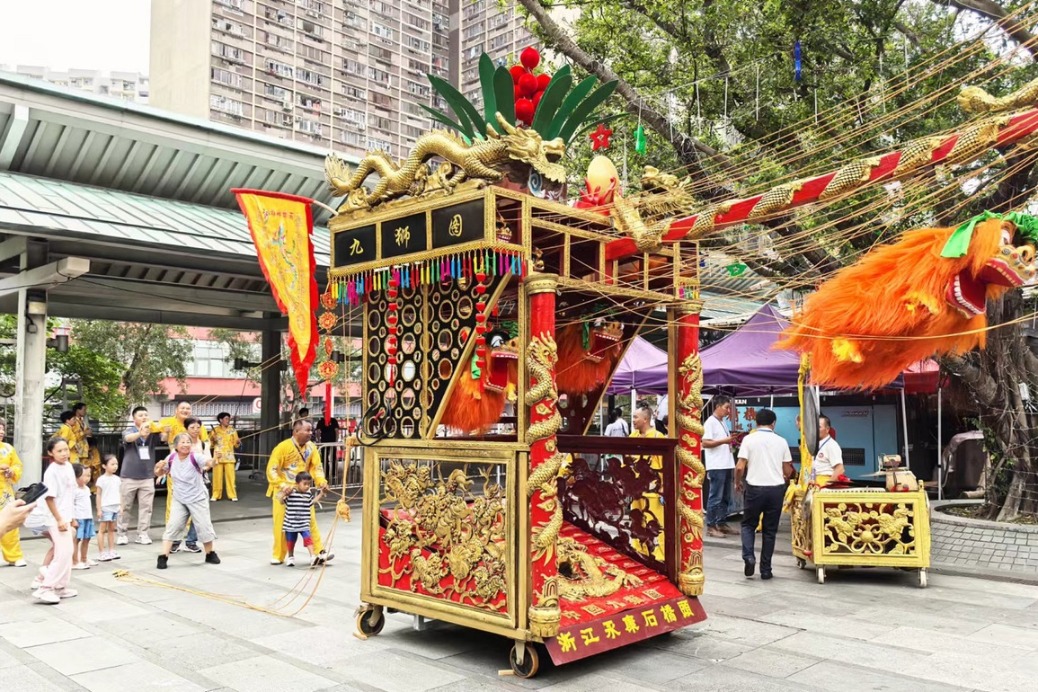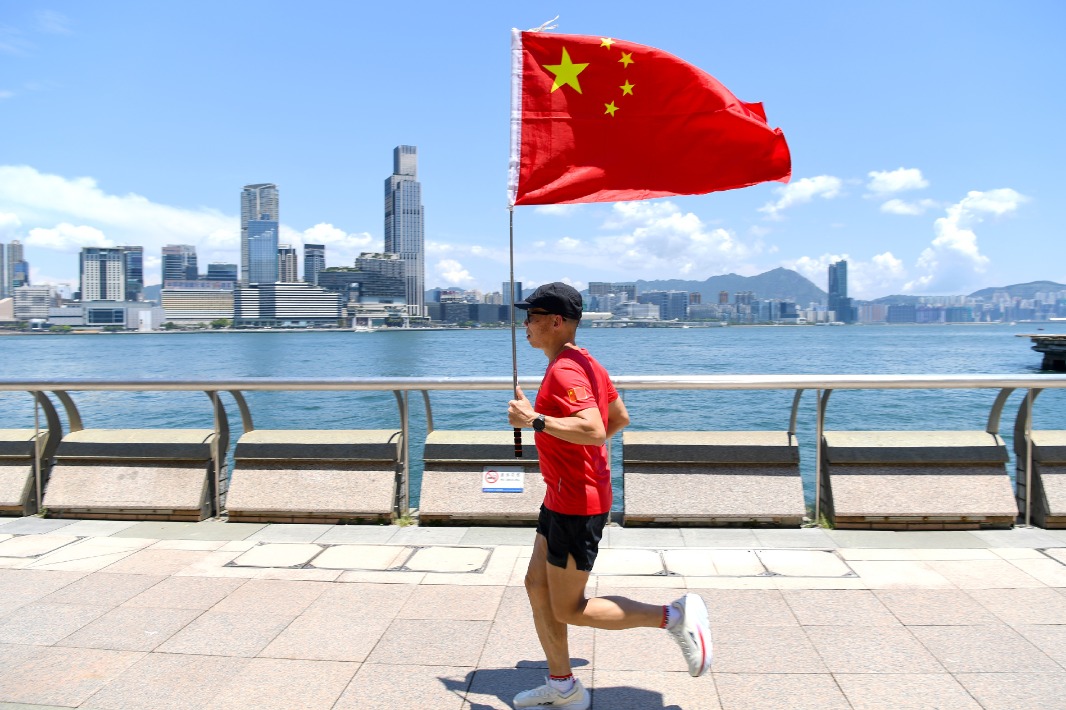Starting it all in HK
Hong Kong's unique economic advantages and ecosystem have made it a premier destination for international startups, which see the city as indispensable for growth in the Asia-Pacific region. Jessica Chen reports from Hong Kong.


Favorable ecosystem
Eli David Rokah, who founded global innovation research platform StartupBlink, notes that Hong Kong's startup ecosystem is fueled by a diverse range of industries, particularly fintech, in which the HKSAR ranks 18th globally according to StartupBlink, along with the technology, e-commerce, biotech and other sectors. "Hong Kong's advantageous position as an international financial center attracts global investors and provides startups with access to a vast network of potential customers and partners," he says.
Over the years, InvestHK has actively promoted Hong Kong as a premier startup destination and has offered comprehensive support services to local and international startups, such as guidance on market entry, networking opportunities, and building up connections with key stakeholders in the startup ecosystem.
A survey conducted by StartmeupHK showed that favorable factors like the HKSAR's simple tax system and low tax rate, accessibility to international and regional markets, access to funding and free flow of information, as well as business opportunities on the mainland, help make the city a hub of opportunity.
The strong entrepreneurial culture and the workforce's high productivity also encourage startups to use Hong Kong as a base for their operations to venture into the GBA and the rest of Asia, Sun Dong, Hong Kong's secretary for innovation, technology and industry, said at the awards ceremony of the HK Tech 300 competition.
Aspire and E3A Healthcare share a common pattern of launching a startup in Singapore and seeking to thrive in Hong Kong. Although both cities have often been compared with each other, and are reportedly pitted against each other, what has happened in the business world suggests otherwise. It's not about Hong Kong versus Singapore — it's about the flow of money.
In October 2023, the HKSAR government launched the Research, Academic and Industry Sectors One Plus Scheme, providing HK$10 billion ($1.28 billion) to strengthen collaboration among the government, industry, academia and the research sectors. Apart from this initiative, startups can also benefit from other funding sources, such as the HK$2 billion Innovation and Technology Venture Fund, Hong Kong Science Park's Venture Fund and the Cyberport Macro Fund, which provide resources for companies to scale up.
"I have applied for every grant available regardless of the amount, allowing our company to start with low running costs because most of them were covered by reimbursements," says Kyle Wong, CEO and co-founder of PanopticAI.
Chen says the Research Talent Hub funding under the Innovation and Technology Fund is "the most direct and impactful support from the government". The funding provides eligible startups with a monthly grant of up to HK$180,000 for three years to hire research talent.
Besides government funds, Hong Kong's tax system and IPOs have long been driving the city in its bid to become a hub for startups and entrepreneurs. Hong Kong's territorial tax system taxes corporations 8.25 percent on the first HK$2 million of profits earned in the city and 16.5 percent on the rest. It does not levy a value-added tax or a goods and services tax. "This simplicity helps businesses with financial planning and budgeting," says Giovanni Angelini, founder of Hong Kong-based Angelini Hospitality.
By comparison, Singapore's tax system features a corporate tax rate capped at 17 percent, with numerous incentives and exemptions that effectively lower the tax burden for many companies. In addition, the city state increased its goods and services tax rate from 8 percent to 9 percent in January.
Like Casinelli, Angelini is unwavering in his belief that Hong Kong remains the most ideal place for starting a company.
"It outwits its competitors with its less stringent compliance requirements, creating a more attractive environment for businesses that prioritize operational efficiency."
Zhang Tianyuan contributed to this story.
- Renmin University's new Tongzhou campus officially opens
- China's top political advisor urges renewed efforts in building community for Chinese nation
- Taiwan issues typhoon warning as Krathon nears
- Most Chinese regions to enjoy sunny weather during National Day holiday
- Remains of 8 martyrs identified in Xizang
- Martyrs' Messenger: Are you still waiting for me?





































